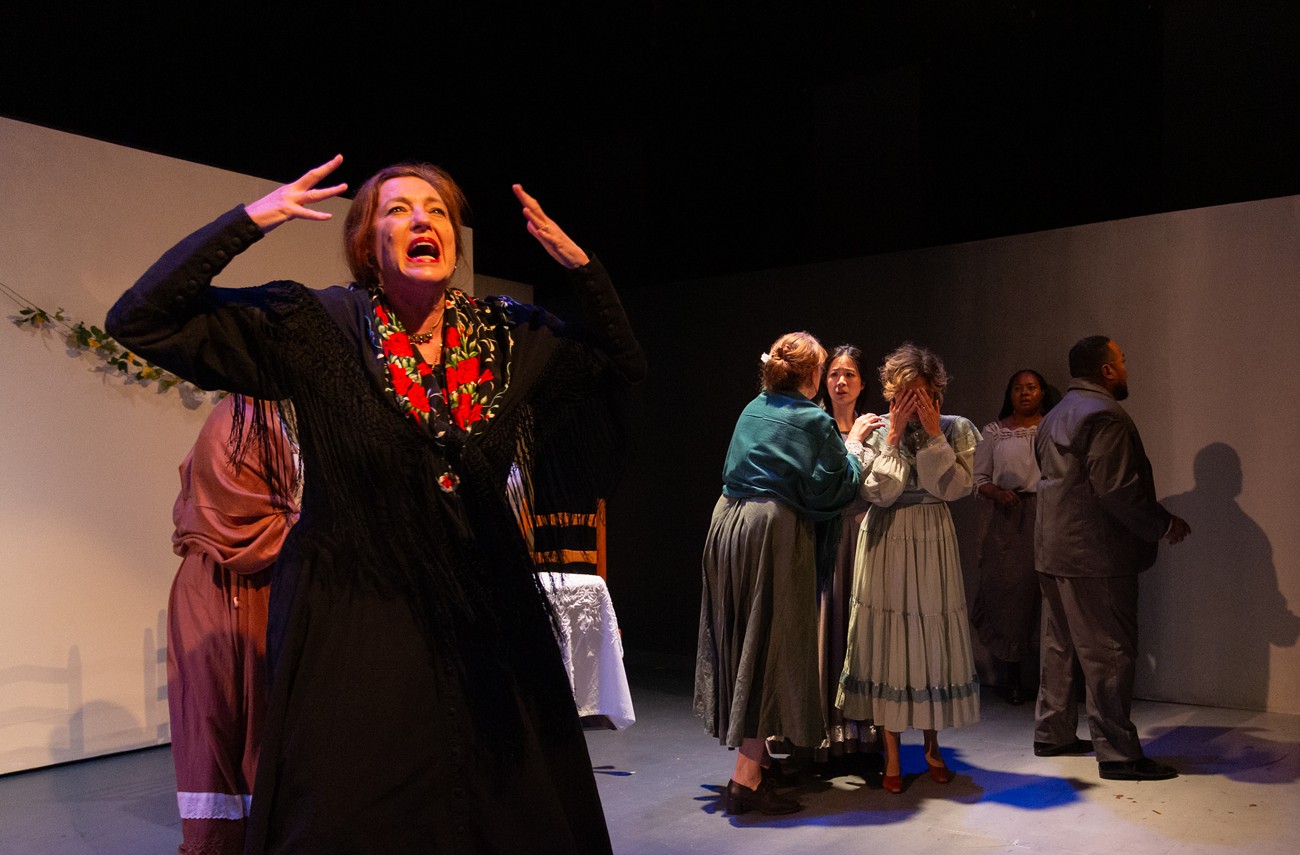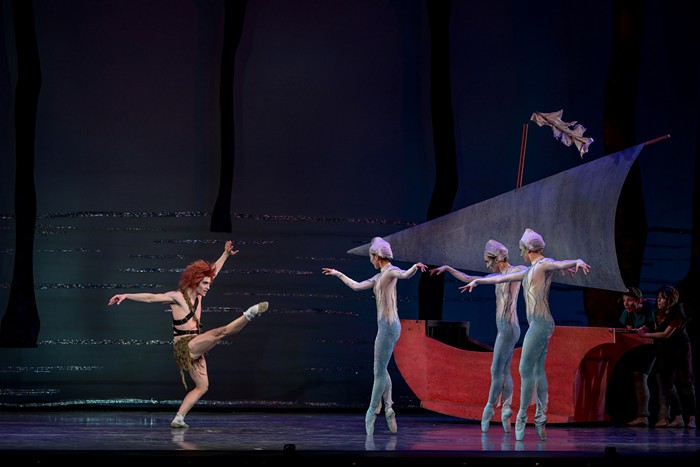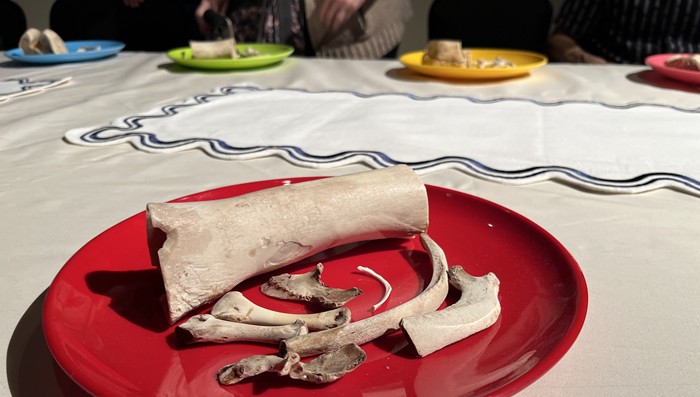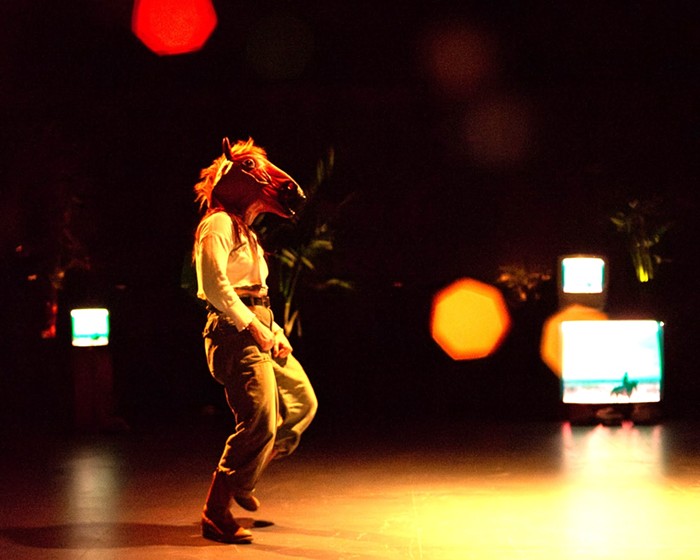The moment when Shaking the Tree's Blood Wedding is most successful happens outside the theater. The audience was suddenly surrounded by the show's actors running through the streets with lanterns, shouting: "Who has a horse? After them! Search all the paths!" In the distance, we spied the play's Father of the Bride-to-be (Bobby Bermea) pause and double over from an unseen weight, bearing the burden of his household's honor and the shock of an unexpected tragedy.
In hindsight, the tragedy was easy to see coming, though we enjoyed waiting in the work's impending doom. The inevitable conflict seeps into the performance, the way the white wedding dress that hangs in the background of the first act seems to draw in a surrounding pool of blood.
Blood Wedding was not everything we'd hoped for from a Shaking the Tree production, but there were good moments. Under the artistic direction of Samantha Van Der Merwe, the boundary-pushing theater perpetually reshapes its inner Southeast warehouse to form bold, new staging. We went in anticipating intriguing visuals and possible fourth wall breaks. When the other side of the stage reached out, it was a brief interaction—an unscripted entreaty from the families to help search the streets—but it was the single place where the work soared.

The other main success of Blood Wedding was in the singing. It's an awkward thing to work up a collective song in a large, quiet room, but that's the magic the supporting cast managed. We imagine group songs were more common in 1933 Spain, when poet and playwright Frederico García Lorca debuted this work. Ash Thurow, Ashlee Radney, and Carissa Te-Hsuan Chu—playing Girl 1-3 respectively—convinced us they were simply those friends that get a song going. With the help of Liam Beveridge and Anthony Michael Shepard, as Young Man 1 & 2, they built some of the first act's most enjoyable scenes.
The production's fatal flaw lay in its spoken lines, and that's a major problem for a play to have. On the night we viewed it, the dialogue of the entire first act felt wooden, as if there were a castwide detachment between the actors and the script. Some exceptions were Leonardo's Wife (Sammy Rat Rios) and the groom's Mother (Luisa Sermol), both of whom possess such natural gravitas that they became the buoys we followed. In the second act, the staging changed to a surreal landscape, populated by death, the moon, and three silvery woodsmen. Lorca's poetic dialogue seemed to work better in an abstract, fairytale-like setting.
Blood Wedding was the first in a trilogy of plays that Lorca wrote in the years leading up to the Spanish Civil War. He was murdered by Franco loyalists less than a month after the coup that started it off. An essay that accompanies the show's program—"Despair Bites Into Me" by Pancho Savery—notes that "despite world-wide efforts, Franco's forces won the war, and he ruled Spain with an iron fist until his death in 1975."
The protracted doom of Blood Wedding leaves us wondering if Lorca knew the extent to which his world was growing more dangerous for a gay man with socialist views, such as he was. It's not obvious from the play, but Savery explains Lorca's portrayals of women were often also allusions to the oppression of gay people. We find these unsaid metaphors in themes of forced marriage and toxic tradition. The larger allegory of revenge that destroys all things is so relevant to now, it makes us wonder if Shaking the Tree works with a psychic to plan its shows. In hindsight, the tragedy was easy to see coming.
Blood Wedding plays at Shaking the Tree Theatre, 823 SE Grant, through Nov 11, Thurs-Sat 7:30 pm, Sun 5 pm, SOLD OUT, email boxoffice@shaking-the-tree.com to be added to the waitlist, 14+




















